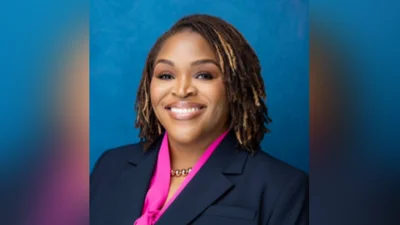U.S. Senators Maria Cantwell (D-Wash.), Cory Booker (D-N.J.), and Richard Blumenthal (D-Conn.) have introduced the Student Athlete Fairness and Enforcement (SAFE) Act, a bill aimed at establishing new rights and protections for college athletes while addressing financial challenges in collegiate sports.
The SAFE Act proposes to give all student athletes federal rights to their Name, Image, and Likeness (NIL), replacing existing state laws with a national standard. The legislation also introduces uniform health and safety standards, protects scholarships, requires agents to register with states, and sets a 5 percent cap on agent fees. Additionally, it seeks to prevent "pay for play" arrangements by mandating that any payments to students are for legitimate NIL use.
“This legislation is a path through the new world of NIL,” said Sen. Cantwell. “This bill will protect athlete rights, preserve women’s and Olympic sports, and help smaller schools compete. It is a fair shake for everyone, instead of the biggest, richest schools.”
Senator Booker emphasized the focus on athlete empowerment: “The SAFE Act empowers athletes and strengthens protections for their health, safety, and education. In stark contrast to harmful legislation being considered in the House, our bill preserves athletes’ rights to advocate for themselves and ensures meaningful avenues for accountability. Playing college football was one of the great gifts of my life—and it instilled in me a lasting conviction to fight for justice and fairness for athletes today and into the future.”
Senator Blumenthal added: “The Student Athlete Fairness and Enforcement Act (SAFE Act) provides clear and enforceable rights and protections to college athletes. For far too long, college athletes had their basic economic rights denied while the NCAA failed to protect their health, safety, and academic success. Our measure centers athletes’ rights and wellbeing with real reforms while bringing schools the clarity they need and promoting women’s and Olympic sports.”
In recent years, changes in state laws regarding NIL compensation have led to inconsistent rules across states governing how colleges recruit or retain athletes. A Supreme Court decision in Alston vs. NCAA in 2021 paved the way for these changes by allowing compensation related to education benefits; more recently, settlements such as Grant House vs. NCAA have permitted direct compensation from schools up to 22 percent of athletics revenue.
The SAFE Act aims to address financial disparities among schools by allowing colleges—through an amendment of the Sports Broadcasting Act—to collectively negotiate media rights without violating antitrust laws. This approach is intended not only to increase revenues but also ensure equitable distribution so that smaller institutions can maintain scholarships for women’s sports as well as non-revenue-generating Olympic disciplines.
Under provisions of this bill:
- Division I student-athletes would receive ten-year scholarship guarantees.
- Post-eligibility medical coverage would be provided.
- Independent officers would enforce safety standards related to heat exertion injuries or conditions like asthma.
- Whistleblower protections would be put in place.
- An Office of Athlete Ombuds within the NCAA would assist student-athletes with disputes.
Further measures include ensuring local broadcast access for football/basketball games free from paywalls; requiring unused streaming media rights be returned so other sports can benefit from digital exposure; stronger regulation of agents representing student-athletes; clearer transfer rules; transparency requirements around collectives arranging NIL deals; enforcement authority granted both federally via FTC action as well as at state level by attorneys general; preservation of current revenue-sharing caps agreed upon between NCAA/student-athletes.
Senator Cantwell has previously criticized alternative legislative proposals such as the SCORE Act—arguing they risk increasing inequalities within college athletics—and released reports highlighting growing gaps between major conferences like SEC/Big Ten compared with other institutions.









